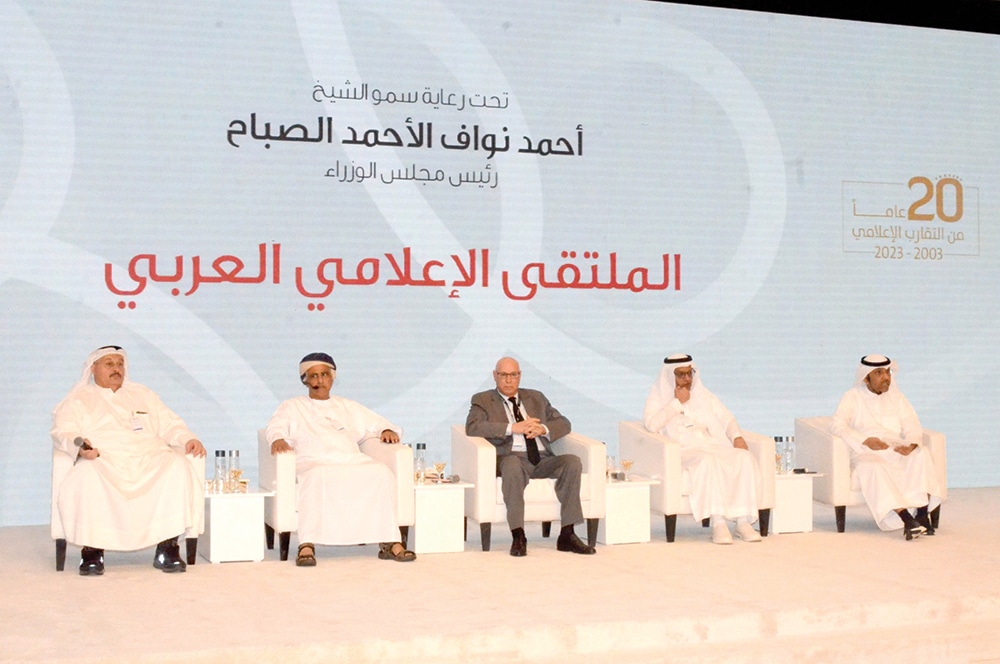By Ghadeer Ghloum
KUWAIT: Kuwait Times and Kuwait News participated as media sponsors of the 18th Arab Media Forum, which opened on Sunday at St Regis Hotel under the slogan “Media of the Future and the Future of Media”. General Secretary of Arab Media Forum Madi Al-Khamees told Kuwait Times: “Today, we launch our initial activities of the Arab Media Forum in its 18th edition in the past 20 years. Two years of the COVID pandemic prevented us from holding the Arab Media Forum with our colleagues. However, we are meeting this year to discuss the media and its future and what it will face in the near future, and what are the updates in this regard.”
Fourteen seminars that revolve around the main topic have been scheduled. During the first seminar moderated by Lafi Al-Subaie, Assistant Undersecretary for Press, Publishing and Printing Affairs at the Ministry of Information, Jamil Al-Dhiyabi, Editor-in-Chief of Saudi newspaper Okaz said creating content is the core element for any media’s success. “It is not a matter of legislation and laws, but rather creating content creatively and keeping up with developments. It is necessary to involve and interact with people and audiences and share information, where the audience may have new information and sometimes correct the information of the editor. The most important topic in any past, current and future media work is content creation,” he reiterated.
Assistant Secretary General for Media and Communication at the League of Arab States Ahmad Rashid Khattabi said it is impossible to understand the future without looking back at the past to some extent. He also mentioned that media is an ancient phenomenon in human history, where communication has always existed, until humanity reached this unprecedented point. “Today, we have an approximate 5 billion users of social media sites, which makes the speed of spreading news faster than ever to create this media flow, where we are now following the world’s news moment by moment,” he said.
Hatim Al-Tai, Editor-in-Chief of Al-Roya newspaper, said: “With the emergence of the Internet, we have entered a completely new phase that required years to clearly and explicitly transition to the concept of digital media instead of traditional media. Today, we are in a completely new phase that we were not previously in, where we are facing a new business model, but we do not yet know all its positives and negatives. However, we hope this will lead to better performance. We no longer read newspapers, yet we follow them through social media platforms at no cost. Therefore, this drives the imposition of fees on online subscribers, but the issue remains with Arab awareness, as Arabs must reach a stage where there are those who will pay for these things.”
Additionally, Waleed Al-Jassem, Editor-in-Chief of Al-Rai newspaper, said media is as it is whether in the past or present, but the true crisis of the media is freedom of expression. Social media platforms succeeded and thrived because they are working without constraints. “The problem lies in stifling freedoms, and the media only succeeds through creativity, which hates restrictions. I believe the real crisis in Arab media is the limited freedom that falls under the control of the law, accountability and investigation, which makes the journalist weary due to facing travel bans or inability to renew their passport, among other obstacles that come as result of freedom of expression,” he said.











